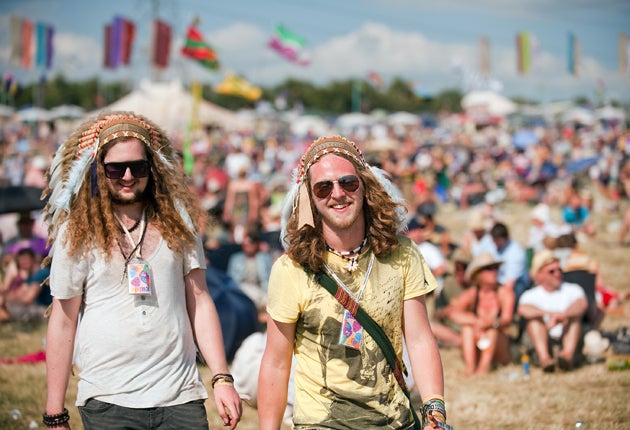Is your Halloween costume culturally appropriate?
You may think it's harmless - but not everyone agrees

Your support helps us to tell the story
From reproductive rights to climate change to Big Tech, The Independent is on the ground when the story is developing. Whether it's investigating the financials of Elon Musk's pro-Trump PAC or producing our latest documentary, 'The A Word', which shines a light on the American women fighting for reproductive rights, we know how important it is to parse out the facts from the messaging.
At such a critical moment in US history, we need reporters on the ground. Your donation allows us to keep sending journalists to speak to both sides of the story.
The Independent is trusted by Americans across the entire political spectrum. And unlike many other quality news outlets, we choose not to lock Americans out of our reporting and analysis with paywalls. We believe quality journalism should be available to everyone, paid for by those who can afford it.
Your support makes all the difference.When you were planning your Halloween costume this year, did you consider whether it may be seen as offensive by people of another race or culture?
Some people may argue that it’s hard to know where to draw the line with fancy dress. Emily Howard, a student at the University of Birmingham believes that there are different degrees of costumes that could be described as "culturally inappropriate".
“I think it's fine if a Caucasian person dressed up as Jasmine, but then something like painting your face black is inappropriate.”
Urvi Yadev agrees, “I think it is inappropriate for someone to dress up as an Indian. I would think they were doing it as a joke and I would be offended. I would not approach them or ask them why they were dressed like that. I would just feel hurt.”
In the McMaster University of Canada’s bookstore, Halloween costumes were sold on campus with descriptions such as "Sexy Indian Princess’ and ‘Eskimo Cutie". These are exactly the type of costumes that people may take offence to.
A medical student, Gemma Batten, says it is "pretty common" to come across white girls "wearing bindis in clubs or Native American-style headdresses to festivals and parties".
The Native American population in the UK is tiny relative to that in America, and our curriculum teaches us so little about American history that very few people here are actually aware that Native Americans are an oppressed race. The combination of this leaves people completely ignorant to the problematic nature of dressing up as Native Americans, and it's important to educate them about this.”
Some people may think that wearing a bindi, sari or headdress is acceptable if they are appreciating another culture and simply expressing that they think their traditional clothes are beautiful. It is easier to justify wearing clothes of a different ethnic group if you visit another country and get to understand the culture and speak to the locals. However, Halloween does not seem like the correct time to be sporting these kinds of clothes, when often the costumes available are "sexy" versions of ethnic attire and people are supposedly meant to look frightening.
Join our commenting forum
Join thought-provoking conversations, follow other Independent readers and see their replies
Comments